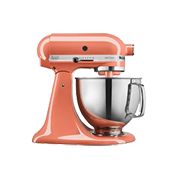Is this Item Dishwasher Safe?
What Items are Safe in my KitchenAid Dishwasher?
Determining if an item is 'dishwasher safe' is vital for preserving its quality and safety. So, is this item dishwasher safe? This term denotes that an item can endure the dishwasher's high temperatures and water pressure without damage. Using a dishwasher for items that are not dishwasher safe can result in warping or fading. Recognizing these factors ensures your kitchenware remains in good condition while keeping the cleaning process efficient and safe.
Key factors such as material composition heavily influence dishwasher safety. Typically, what can go in the dishwasher includes items made from glass, ceramic, or specific plastics. Conversely, delicate materials like some metals or wooden utensils may be susceptible to damage and are better suited for hand washing. Furthermore, the item's design, including its shape and intricate details, can affect its durability in a dishwasher.
Common misconceptions about dishwasher safety can often lead to confusion. A prevalent belief is that all plastics are dishwasher safe, which isn't always true since some can warp or degrade. Similarly, items labeled as 'top rack safe' should not be placed in other sections of the dishwasher, as they may be more delicate. Always consult the manufacturer's recommendations for specific guidelines regarding your KitchenAid products to ensure proper care and maintenance.
Common Dishwasher Safe Items
Knowing what can you put in the dishwasher can simplify kitchen maintenance. Items made from durable plastics, stainless steel, glass, and certain ceramics are typically designed to withstand the dishwasher's high temperatures and water pressure without compromising their integrity.
Common kitchen items that are often considered dishwasher safe include plates, bowls, cups, and utensils made from stainless steel or dishwasher-safe plastic. Many glass containers, like measuring cups and baking dishes, are also dishwasher safe. However, it's crucial to check specific manufacturer instructions, as not all items of these materials are suitable for dishwashing.
To achieve optimal results when loading your dishwasher, follow best practices: place larger items on the bottom rack to avoid blocking the spray arms. Smaller items, such as utensils and fragile glassware, should be loaded on the top rack. Always face the dirty side of items towards the spray jets for the best cleaning results. By adhering to these guidelines, you can ensure that what can go in the dishwasher remains in excellent condition while achieving a thorough clean with each cycle.
Materials/items safe to be washed in the dishwasher:
If you have doubts about washing a particular item in the dishwasher, check with the manufacturer to see if it is dishwasher-safe.
Aluminum
Aluminum is dishwasher-safe; however, high water temperatures and detergents can affect the finish of anodized aluminum.

China/Stoneware
Always check the manufacturer's recommendations before washing. Antique, hand-painted, or over-the-glaze patterns may fade. Gold-leaf patterns can also discolor or fade.

Crystal
Check the manufacturer's recommendations before washing. Some types of leaded crystal can etch with repeated washings.

Glass
Glass is dishwasher-safe; however, milk glass yellows with repeated dishwasher washing.
Plastics
Plastics are dishwasher-safe; however, always check the manufacturer's recommendations before washing. Plastics vary in their capacity to withstand high temperatures and detergents. Load plastics in the top rack only.

Stainless Steel
Run a rinse cycle if not washing immediately. Prolonged contact with food containing salt, vinegar, milk products or fruit juice can damage finish.
Sterling Silver or Silver Plate
Run a rinse cycle if not washing immediately. Prolonged contact with food containing salt, acid or sulfide (eggs, mayonnaise and seafood) can damage finish. Also, sterling silver or silver-plated silverware should not be placed in direct contact with stainless steel flatware. The contact point can cause an electrolytic action to take place, causing permanent pitting of the sterling.

Materials/items not safe to be washed in the dishwasher:
Disposable Aluminum
Do not wash throwaway aluminum pans in the dishwasher. These might shift during washing and transfer black marks to dishes and other items.

Bottles and Cans
Wash bottles and cans by hand. Labels attached with glue can loosen and clog the spray arms or pump and reduce washing performance.
Cast Iron
Seasoning will be removed, and iron will rust.

Gold
Gold-colored flatware will discolor.

Hollow-Handle Knives
Handles of some knives are attached to the blade with adhesives that can loosen if washed in the dishwasher.
Pewter, Brass, Bronze
High water temperatures and detergent can discolor or pit the finish.
Disposable Plastics
These items cannot withstand high water temperatures and detergents.

Tin
Tin can rust.
Wooden Ware
Wash by hand. Always check the manufacturer's instructions before washing. Untreated wood can warp, crack, or lose its finish.
If you would like to download or view product literature for your appliance, please visit our Manuals and Literature page.










.png)

























